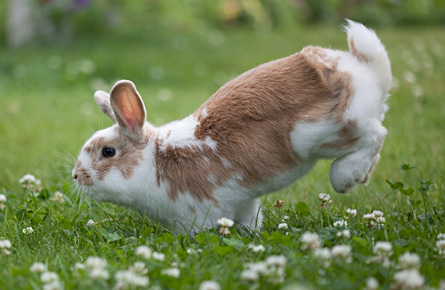In Oxford, a male dog's removal of both testicles is known as "castration." This process, known as "spaying," involves removing the dog's ovaries or uterus.
A female dog that has been spayed is no longer able to reproduce and will not go into her breeding season. As early as six months of age, females can be sterilised; however, for most breeds, it is advised to spay females prior to their season, or "pre-season." If your dog is older than six months or has started going through seasons, we will need to wait three months after a season to be sure we are working at the best time.
 Benefits of Dog Neutering in Oxford:
Benefits of Dog Neutering in Oxford:
-
Prevents unwanted pregnancies and womb infections
-
Can help prevent tumours and breast cancer
-
Can also help prevent testicular cancer and prostate disease
-
Assists in preventing roaming and aggressive behaviour
-
It’s normal to neuter! 71% of owned dogs in the UK are neutered*
*PSDA Paws report 2020
At what age are dogs neutered?
Dog neutering in Oxford is frequently performed in the pre-season for female dogs and at six months of age for male dogs in order to lower the prevalence of mammary cancer in female dogs. To offer you the finest advice based on the most recent data, we would also take your dog's breed, size, general disposition, and other risk factors into consideration.
Male dogs who are more than six months old can be neutered at any time; however, while discussing the surgery, we would still take the dog's breed, size, general behaviour, and other risk factors into consideration.
We would wait three months after the season if your dog is not spayed before her first one.
Should I let my dog have one litter before spaying her?
It's an often asked issue, but there are no established health advantages to allowing your dog to have a litter; the same goes for cats and rabbits.
General anaesthesia for your dog Neutering in Oxford
For the neutering of your dog, a general anaesthetic is necessary; at Boundary Vets, we've taken precautions to guarantee their safety throughout the process. Throughout the procedure and the healing period, your pet will be closely observed by a committed Registered Veterinary Nurse (RVN). There are always some risks associated with anaesthesia, but they are quite minimal—especially with dog neutering, since the dogs are often young, in good condition, and suitable for the treatment.
The danger of anaesthesia in dogs is higher depending on their age, breed, and underlying medical conditions. Before your dog's procedure, we can run a pre-anaesthetic blood test to rule out any underlying medical conditions. This can be discussed on the day of the procedure as well as while arranging the course of therapy. Your dog will receive two distinct types of pain relief in addition to a premedication to aid in relaxation. You can be sure that the professionals at Boundary Vets will always be there to help your pet.
Your Dog will stay the day with us
Please make sure your dog is wearing a safe harness or lead on the day of the Oxford dog neutering treatment. We will go over the permission paperwork and process during the admission visit. Please be aware that the consent form needs to be signed by the registered owner (who must be above 18) or an approved agent. When our staff is satisfied with your dog's recovery, they will accept them as "day patients" and release them later that same day.
The staff will go over all you need to know about giving your dog post-surgery care instructions and information on pain medication during your dog's discharge visit. Please give us a call at 01235 538721 if you have any further queries after getting your dog back home. We are always here to help you and your dog.
Pet Health for Life Plan Offer
Members of the Boundary Vets Pet Health for Life plan are eligible for a 10% reduction on neutering operations. Preventative health care is provided by our health club, and you may be able to save money on annual pet care expenses.







